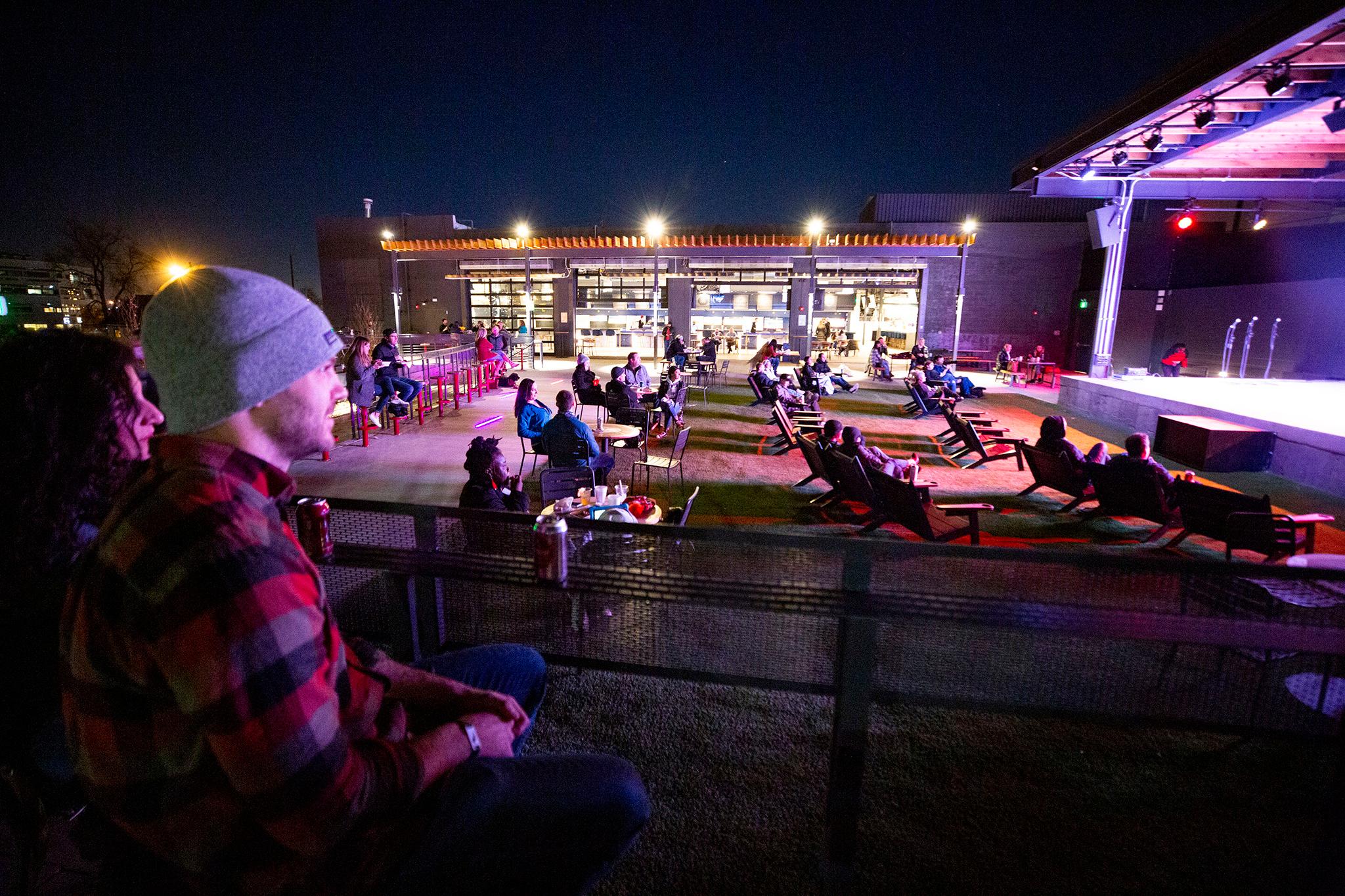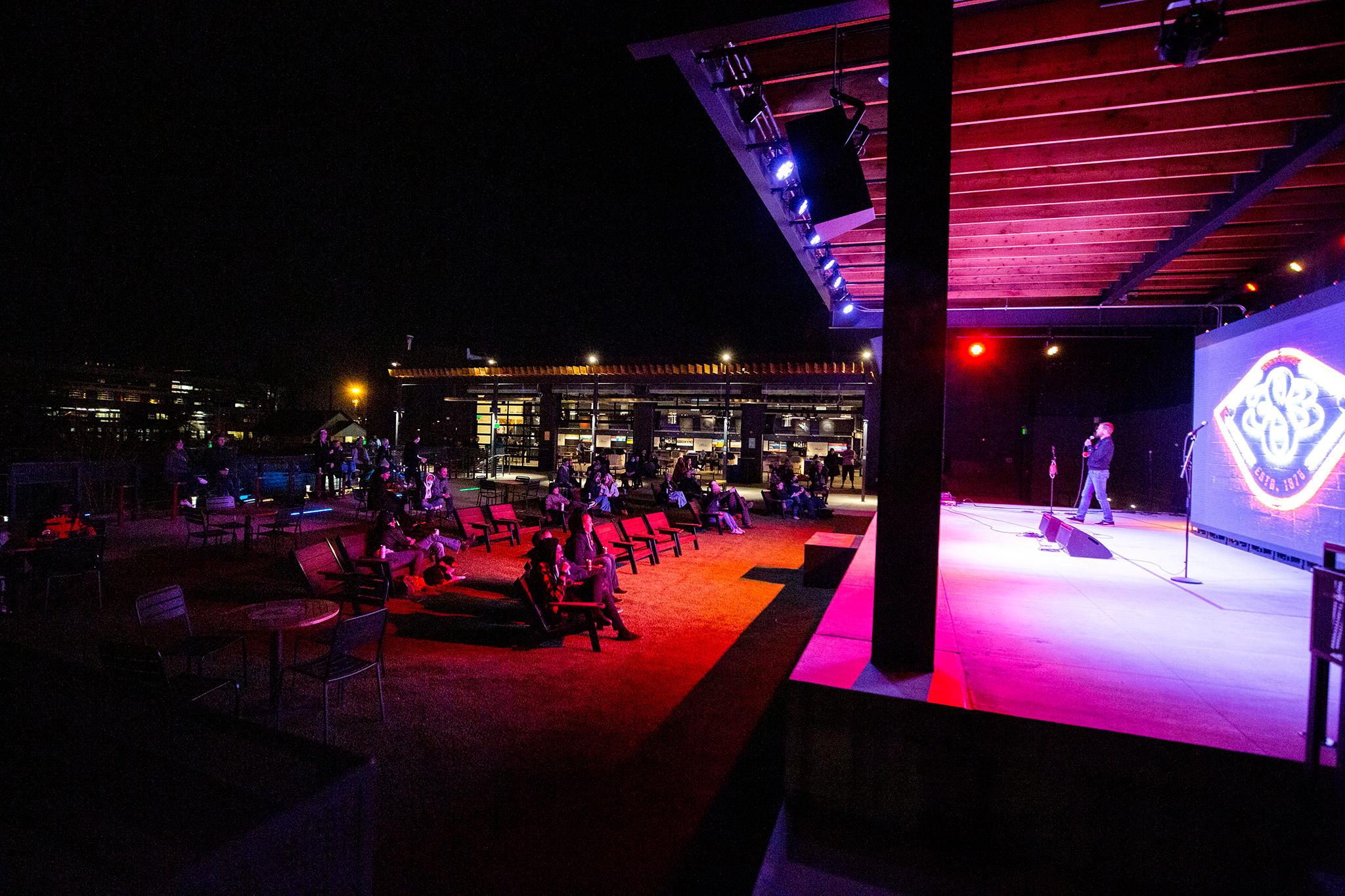"Remember when we thought 2018 sucked?" comedian Ben Roy asked a live audience in November, opening his set. "Little did we know, sitting in the corner, all alone at a table by itself, was 2020 just laughing. Laughing to itself. The only thing you would see is the subtle little bit of light off its one gold teeth."
The crowd, bundled in fuzzy hoods and blankets, laughed like the good old days.
The comic, known by some for the TV show he co-created called "Those Who Can't," was headlining the first comedy night at Number Thirty Eight. It's a new spot between Brighton Boulevard and the South Platte River. The venue's owners, who they say they've got the largest patio in the city, are hoping that Denverites will keep coming to see outdoor entertainment all winter long.
The night of Roy's performance was the last before new COVID-19 restrictions banned indoor dining at restaurants for 30 days.
"Tomorrow, it'll be entirely outdoor seating," co-owner Spencer Fronk said.
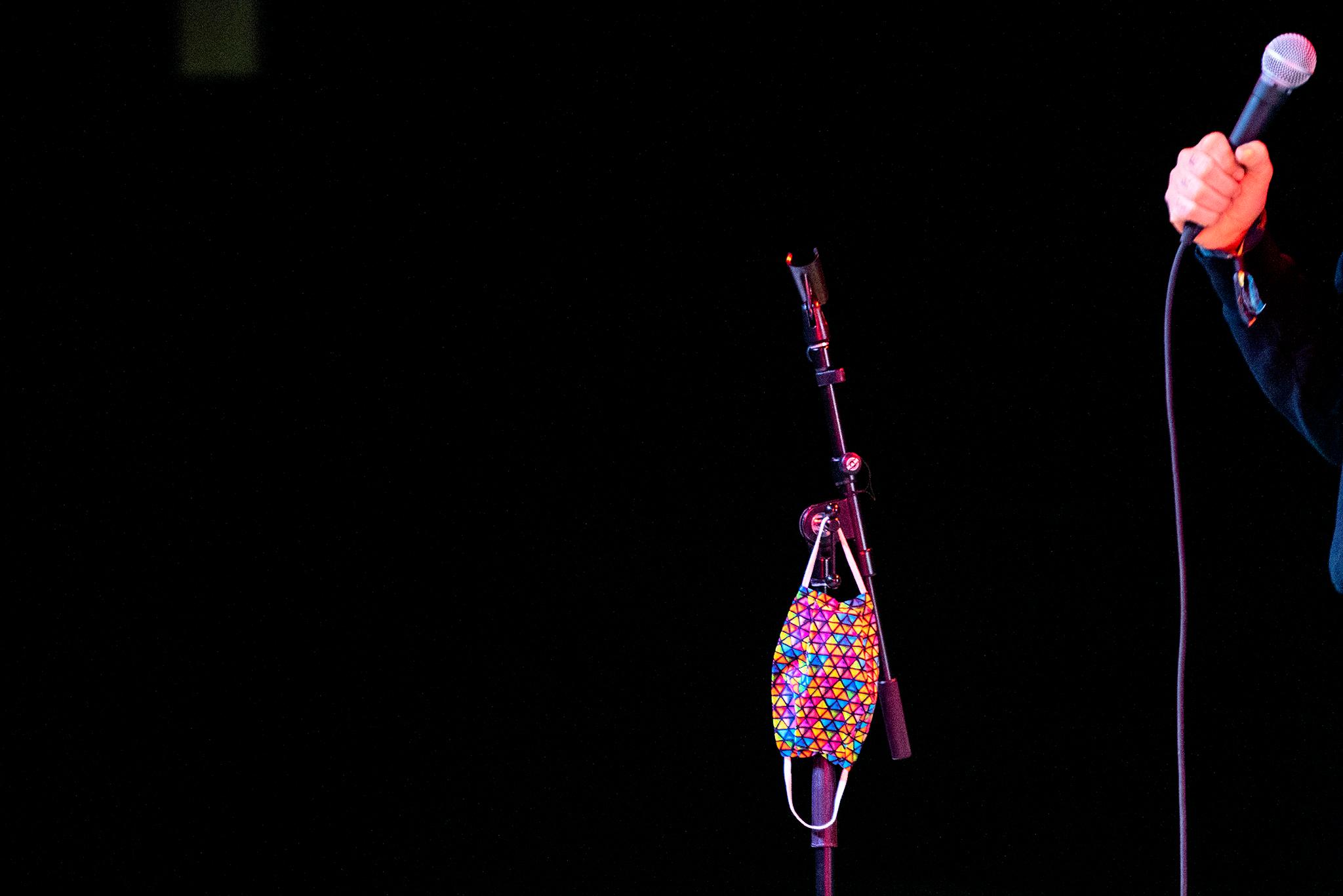
In a normal winter, it may have been difficult to convince people to sit outside for a few hours. But people want to get out in 2020, and Fronk thinks the right framing might do the trick.
"Be sure to bundle up and enjoy an après lifestyle," he said. "You can ski all day at A-Basin, and then you can go and sit on some Adirondacks with a puffy jacket and drink a bunch of beers. ... Why can't you do that in Denver?"
In this weird winter, the comics are hoping the audience will grin and bear it.
Brandon Patrick has been doing standup for over a decade. This year, he said, things became difficult.
"Oof," he said. "I had all the way up until July booked out, and then COVID hit and, one by one, they were like, 'We're canceling this week.'"
In the early days of the pandemic, when his gigs dropped off completely, Patrick decided to pivot.
"My last set was really good, and I was like: I'm going to put this out. I'm going to sell this as merch to support my income."
Patrick ended up releasing two comedy albums over the summer. He said his second, "The Ballad of Trashcan," hit number one on iTunes when he released it.
"That was kind of my income for a little while," he said.
It worked. A set about possibly pooping in a hookup's bed was paying his rent.
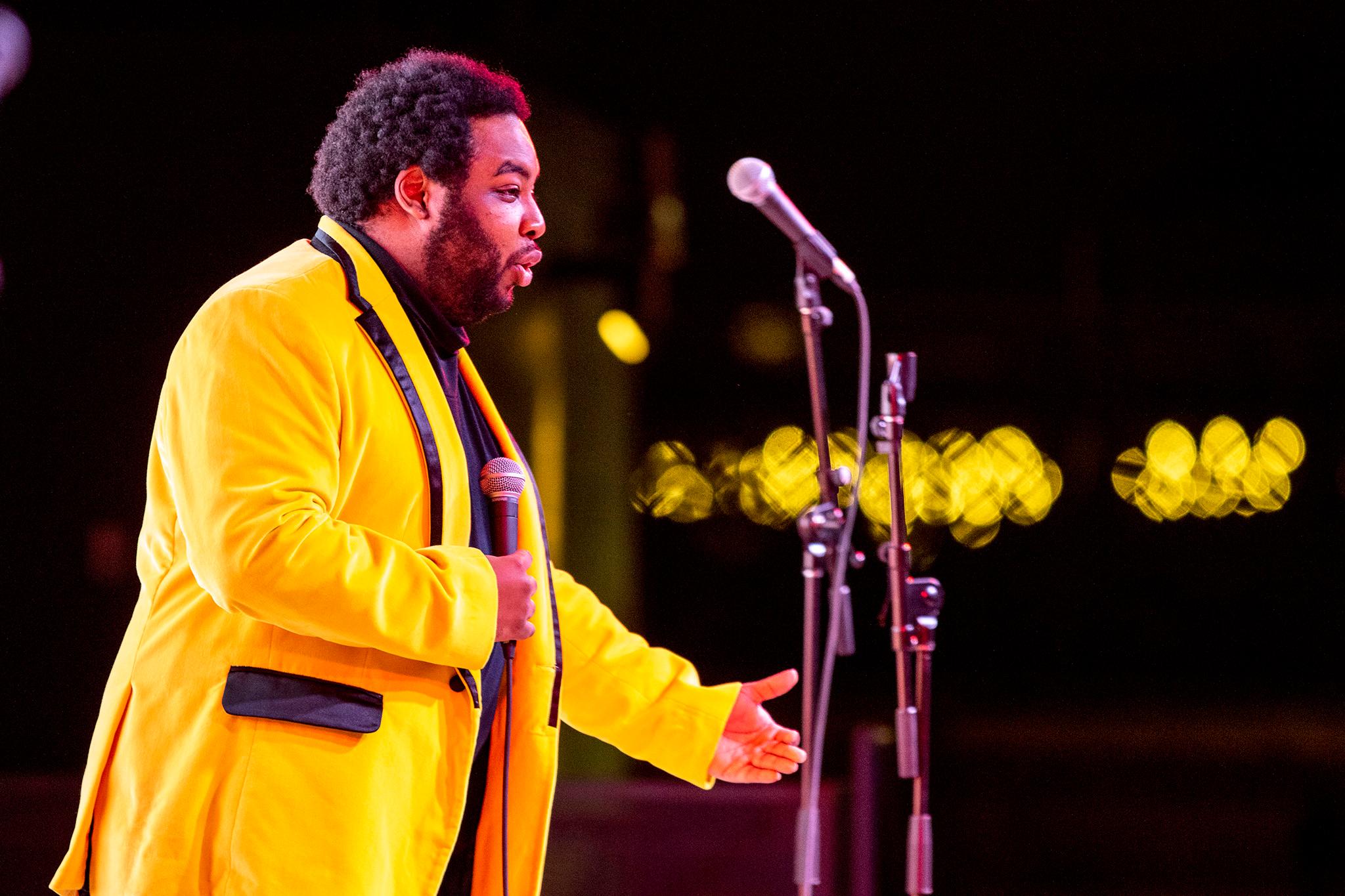
But the sales peaked and then waned. He needed to get back out to make some more money. He also missed telling raunchy jokes in front of an audience.
Over the last few months, before COVID-19 cases in the city skyrocketed in November, he and his local comedy comrades had been busy. Patrick said he's still taking indoor gigs, though he's not entirely comfortable with some of them. When asked why he's still taken the scarier jobs, he answered: "bills."
"I'm doing Colorado Springs, where they think it's a myth, still," he said.
He asked the guy who booked the show, are you taking precautions?
"He's like, 'Nah man. You know, it's not really a big deal, my man,'" Patrick recalled. "I'm like, 'OK, so this'll be the weekend I'll get it."
He was glad to play an outdoor show at Number Thirty Eight.
"This is the closest it's ever felt to 'before COVID,'" he said.
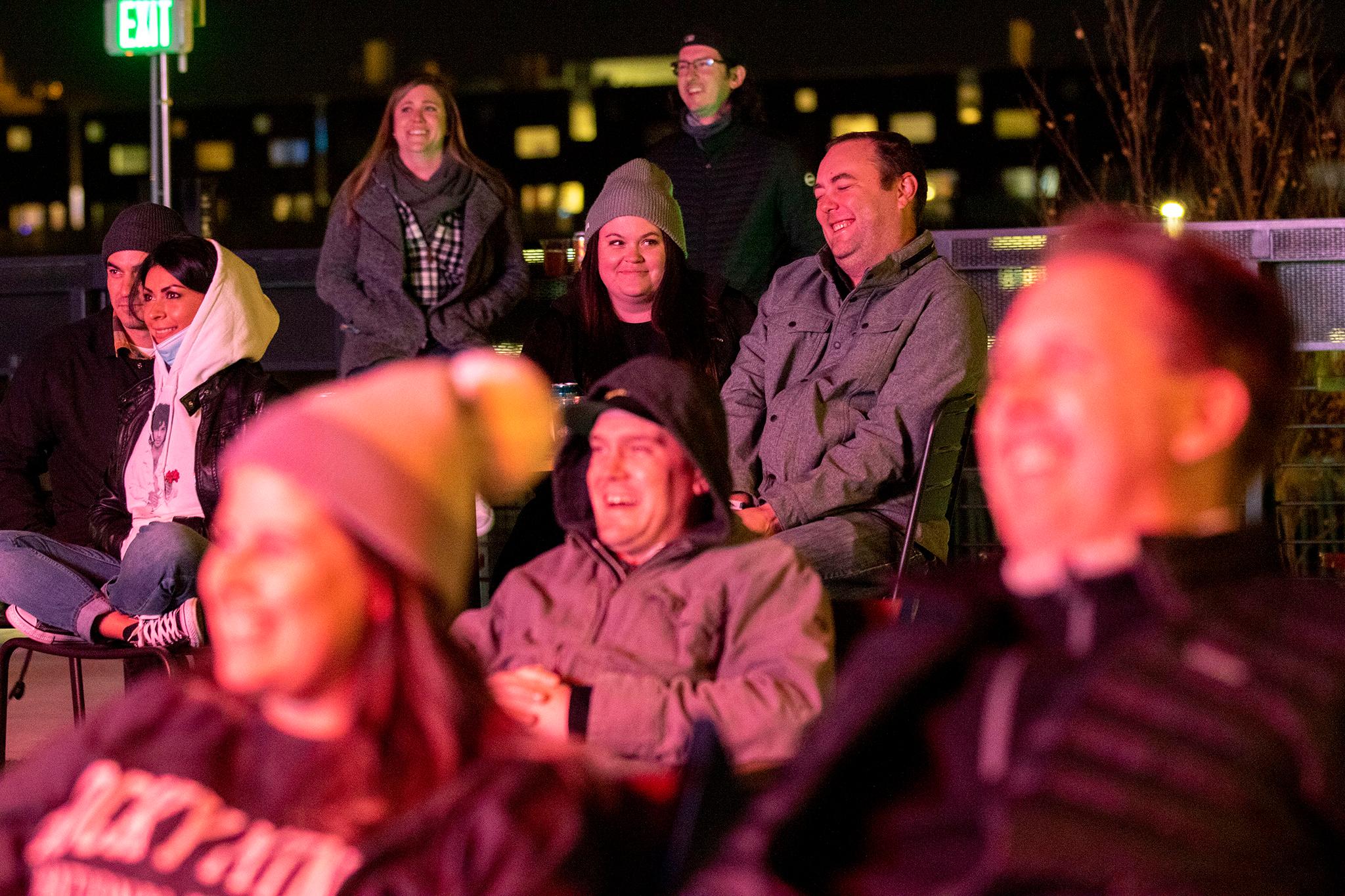
Shanel Hughes, first on the lineup that night, said she did at least a dozen shows in November. Some have been virtual, but she was still taking indoor in-person gigs. For the most part, she said she's felt safe inside, but things can become unpredictable after-hours.
"You're fine and then people drink. People take their masks off. People come up and hug you," she said. "I love doing my shows. And also I understand the risk associated with it. It's a weird mix."
Kate Strobel, who emceed and produced the comedy showcase, said the huge outdoor space is a godsend. When she organizes a show these days, she must think about the performers and the audience's safety.
"Am I risking people's lives by putting this on? This, I think, is the safest place to do it," she said. "We don't live in a world where our government will take care of us. We have to work. We have to put those questions in our own hands, rather than having something to fall back on."
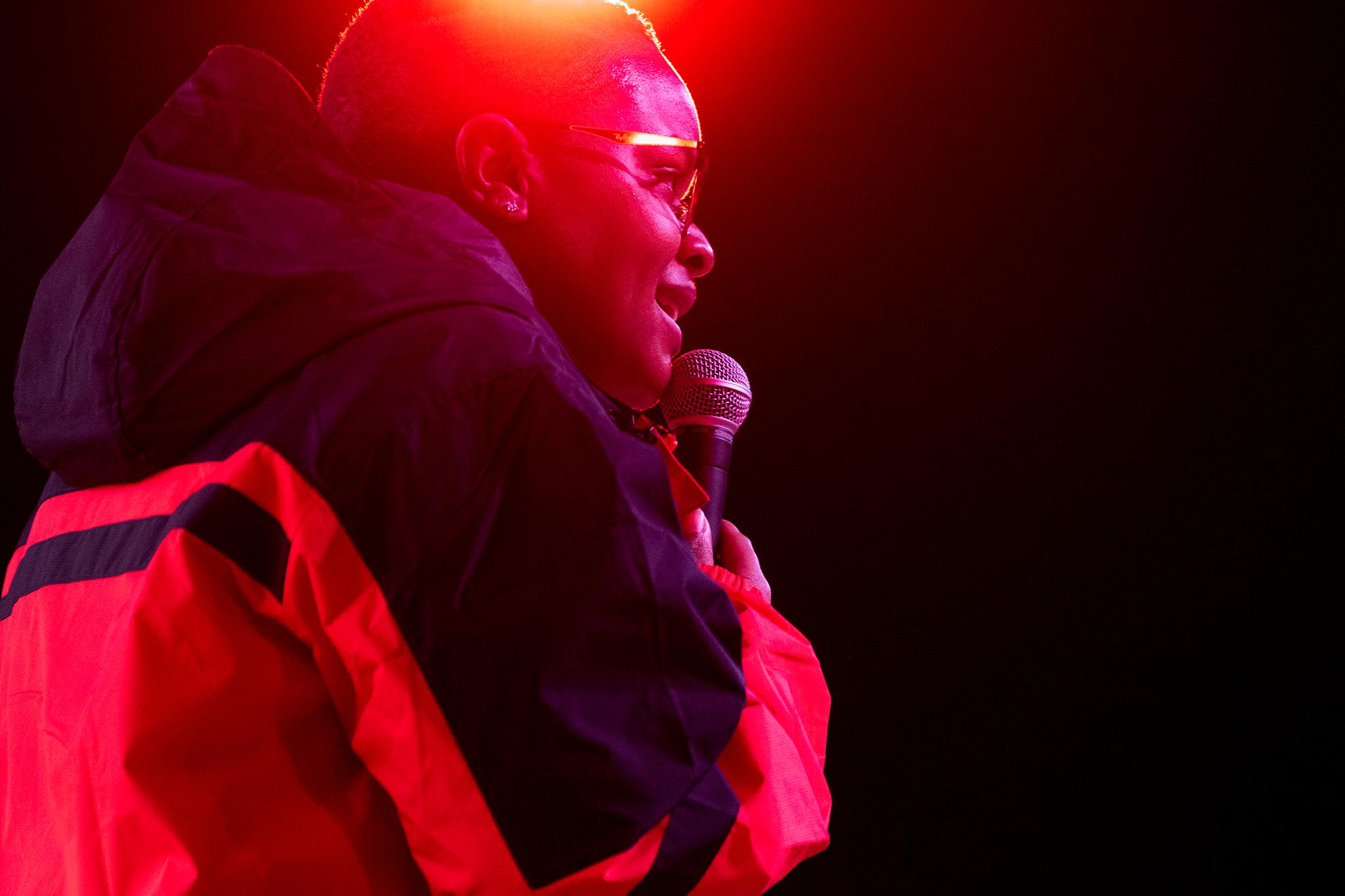
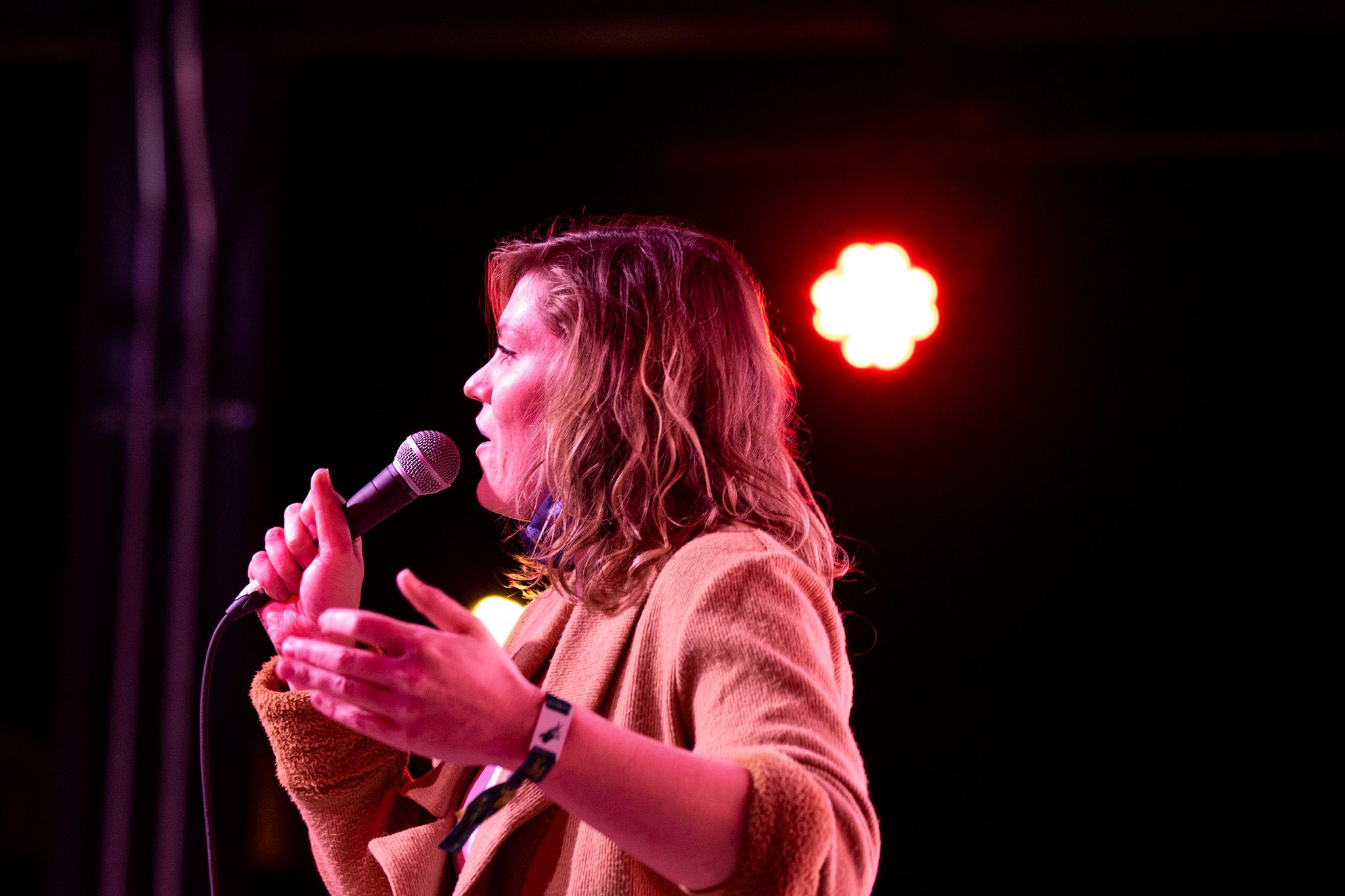
Ben Roy describes himself as a "mid-" or "low-level headliner" who performs mostly on tour. He said he generally trusts official guidance that governs the venues he visits, but it's gotten more difficult to book gigs at the industry's higher echelons.
"All of those clubs that canceled are going to book their biggest acts for the next year, everybody that puts asses in seats," he said. "So it's a little scary, business-wise."
Movie theaters are relying on gigantic blockbusters, like Christopher Nolan's "Tenet," to bring people indoors. Anything short of a surefire moneymaker might skip the big screens altogether. Big comedy clubs are making similar calculations, Roy said, thinning the market for people like him.
Number Thirty Eight also needs audiences to adapt to strange circumstances during this pandemic.
People need to show up so the business can pay its mortgage, staff and entertainers. Filling the space, as much as they're allowed to, is especially important because there are no cover charges to see shows. Their weekly music acts and the monthly comedy showcase are draws to get people in the doors and to buy dinners from the seasonally rotating menu and beers from breweries represented inside.
Co-owner Fronk said the vision was to give the RiNo Art District something it's been missing.
"An arts aspect that's really lost in RiNo is the performing arts," he said. "We wanted to create a space where we could create a platform for local artists, where they could really come in and thrive."
Fronk said he and his cohorts took inspiration from cities like Austin and Nashville, where free music pours onto the streets.
"Don't pay a cover, don't buy a ticket, just make a reservation," he said. "Something is going to be on the stage."
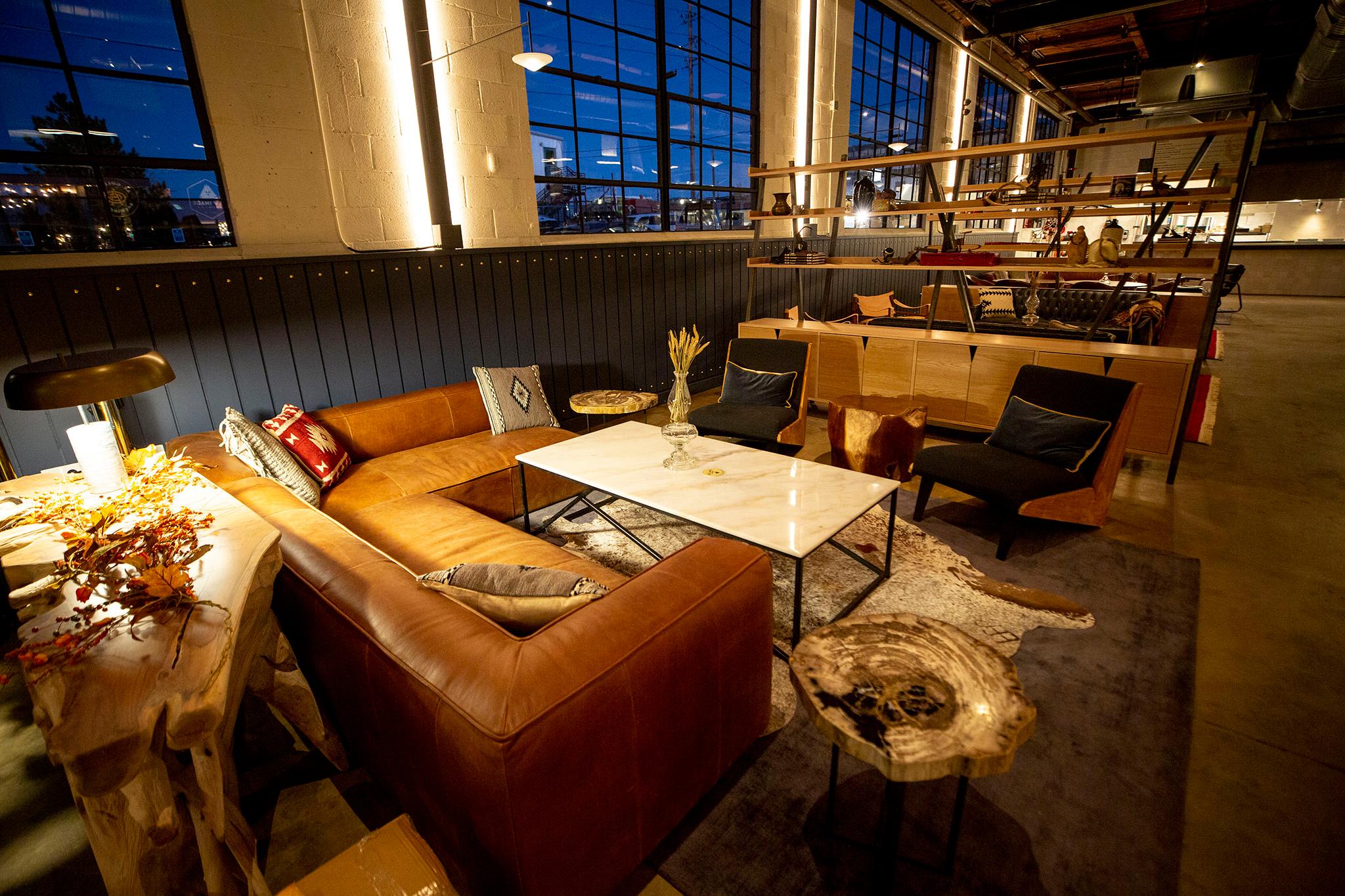
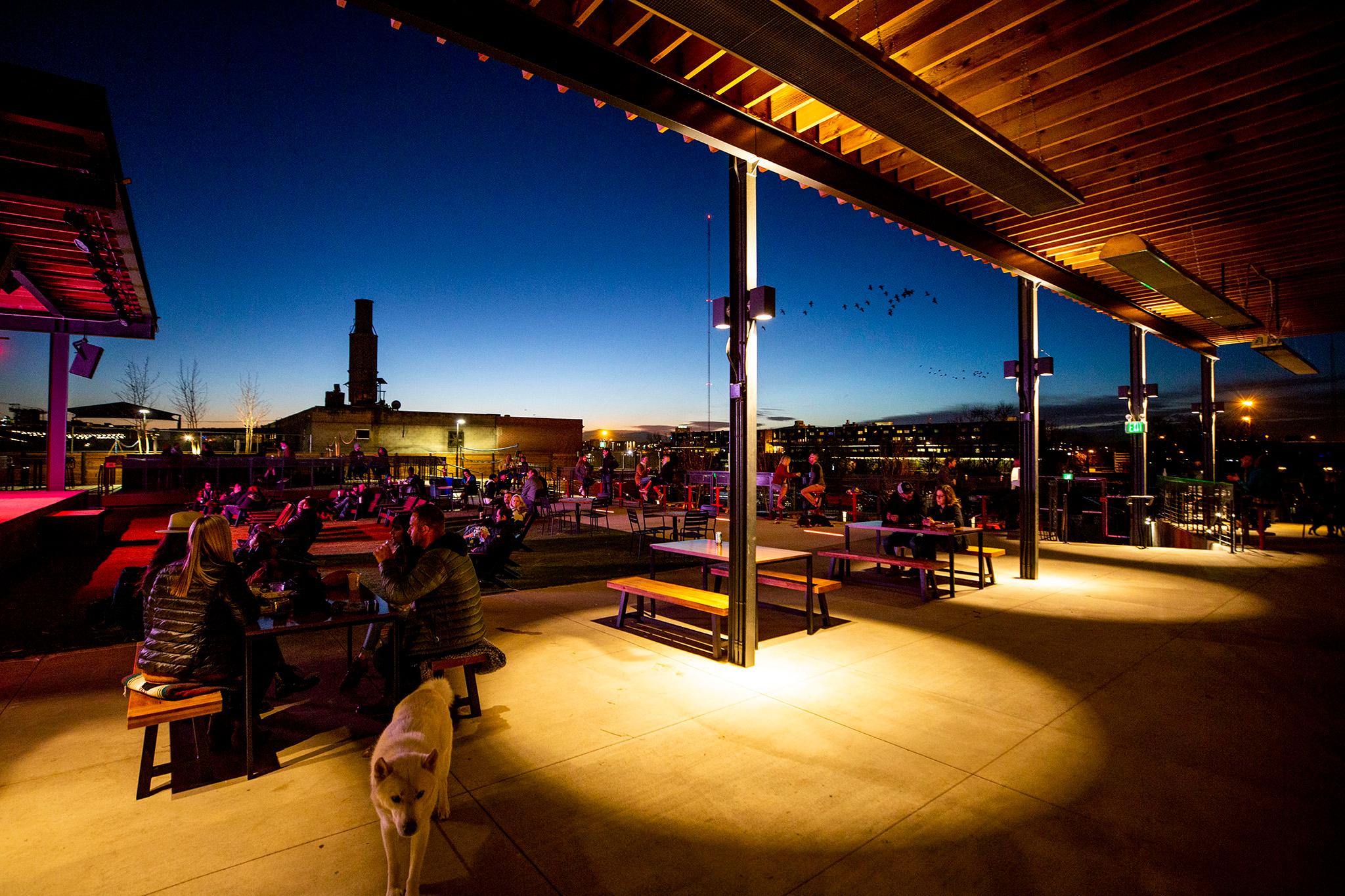
They also wanted to "rebuild" how a bar works "from the ground up."
When customers enter the space, staffers run their credit cards and hand them wrist bands with embedded RF chips. From that point on, bartenders and kitchen staff need only scan the bracelets to add new orders to tabs. Fronk said the idea for a contactless system predated the pandemic, but it has proven handy in this moment.
"It's a music-festival payment system on a daily basis that really emphasizes safety," he said.
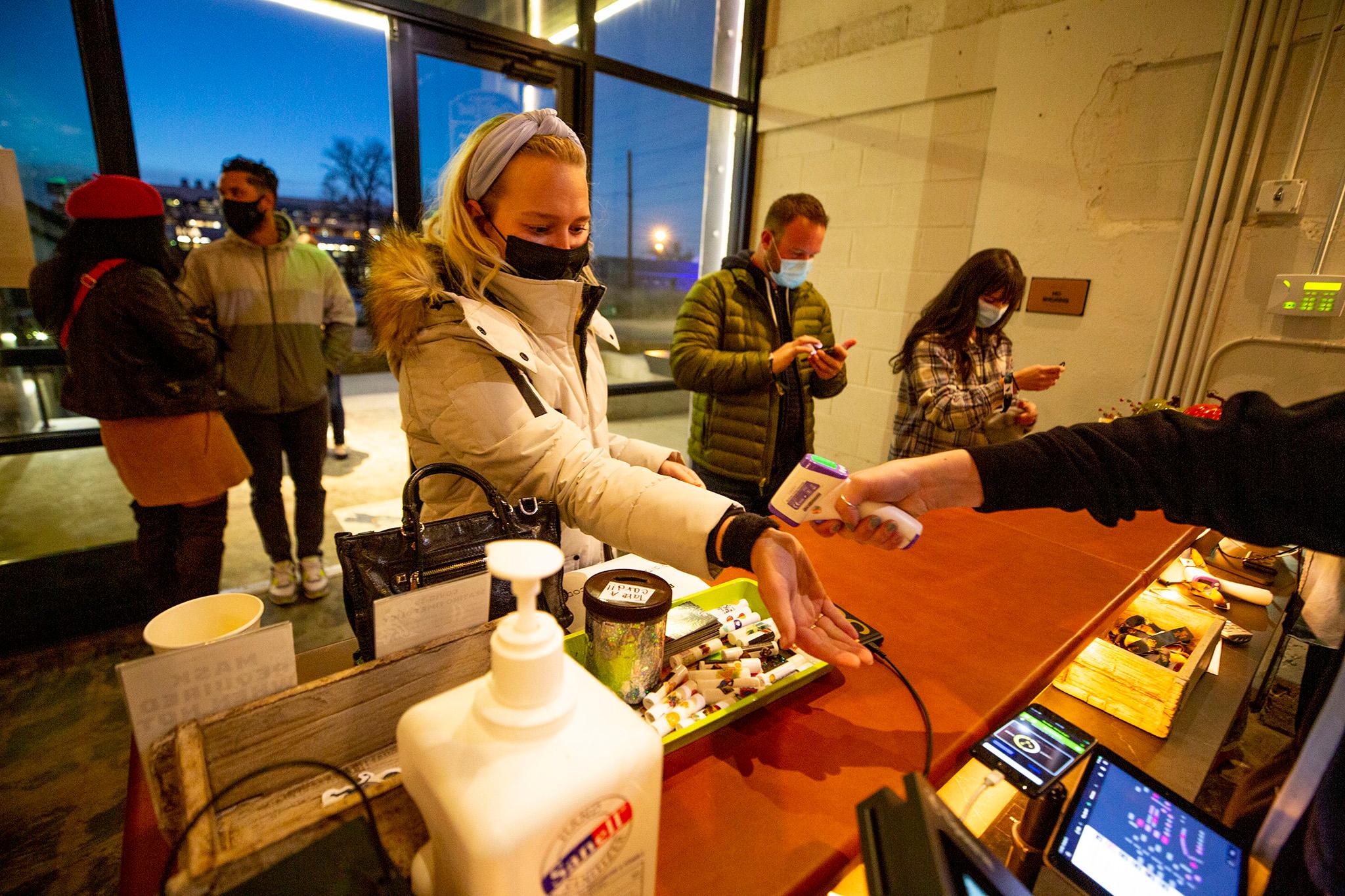
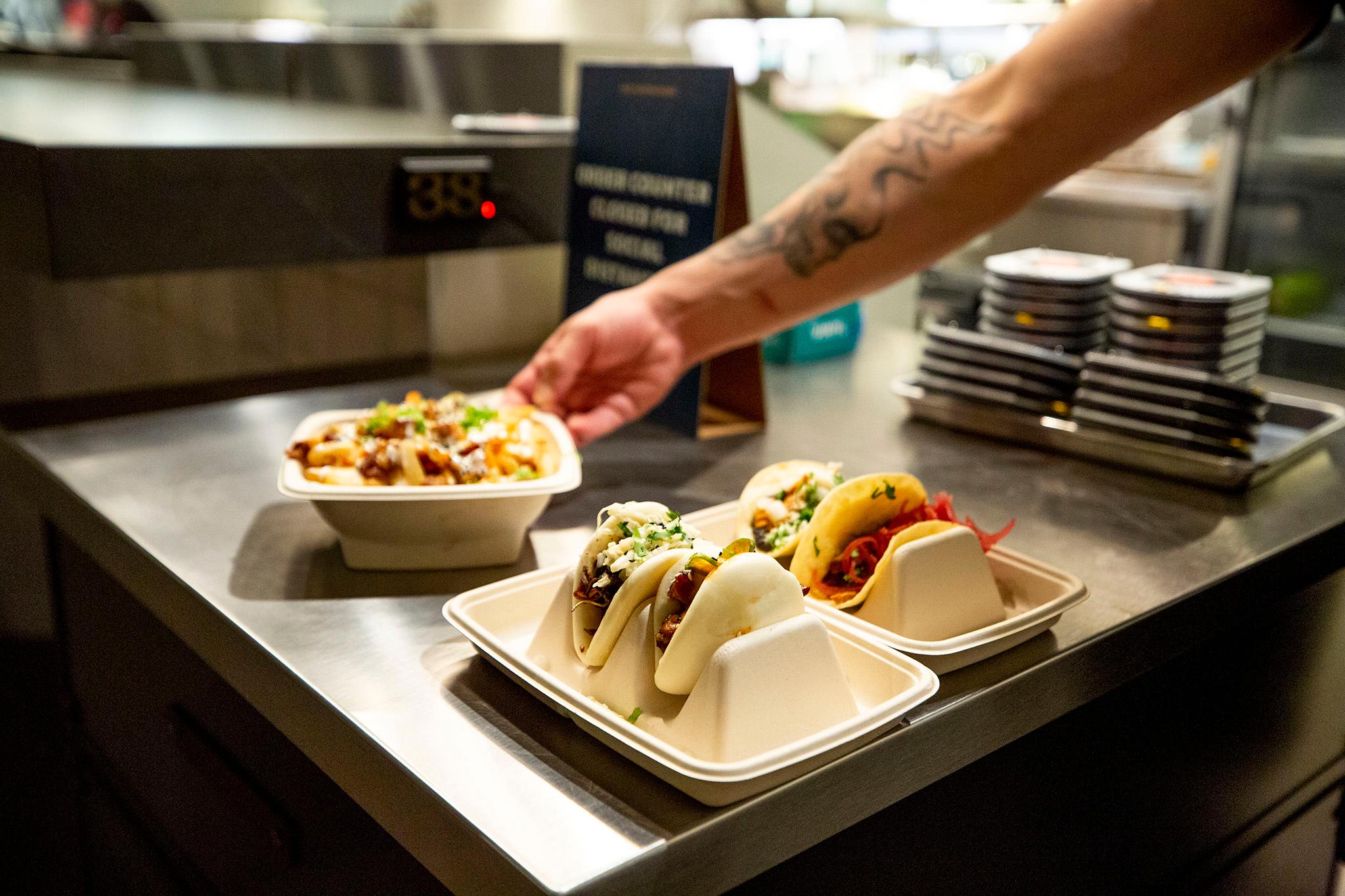
As to whether people will be down to see shows outside in the winter, Fronk said he's confident they will come. He's been pleased with attendance in the last few months since the "new-age bar" opened. But the real test will come as it gets colder.
Fronk and his colleagues have a lot to gain if they make it through to normal times. The art district around them has transformed tremendously in recent years, and it's poised to see substantially more apartment dwellers and foot traffic in the future.
Roy said there's something about the weirdness of this moment that is pushing people's limitations.
"Those people are all happy," he said of the audience after his first set. "They've been bundled up. A couple people had blankets draped over them. They were making the best of it, and there's this feeling of all of us sharing in something."
So, can you make fun of a global health crisis?
Brandon Patrick said he doesn't.
"I don't even talk about it. I want to try to get the audience back to normal. I want them feel like they're not a freak show or a weird experiment," he said. "You don't know what someone's coming to the show for. Someone could be here because their mom died."
He expects some people in his audiences come out to forget about hard times.
"It could be too real for someone. I would rather alienate them with 'I s*** in a girl's bed' than make light of the disease that took your parents."
Hughes said she takes a different tact.
"It's weird not to bring it up. Obviously it's happening," she said. "We bring truth to the stage, that's our job. Some people just need to hear it. To make it light. To make it funny and to also be like, yes be safe and take care of yourself. ... We can talk about it."
While neither she nor Patrick made the pandemic a central theme of their sets at the Number Thirty Eight showcase, Roy did.
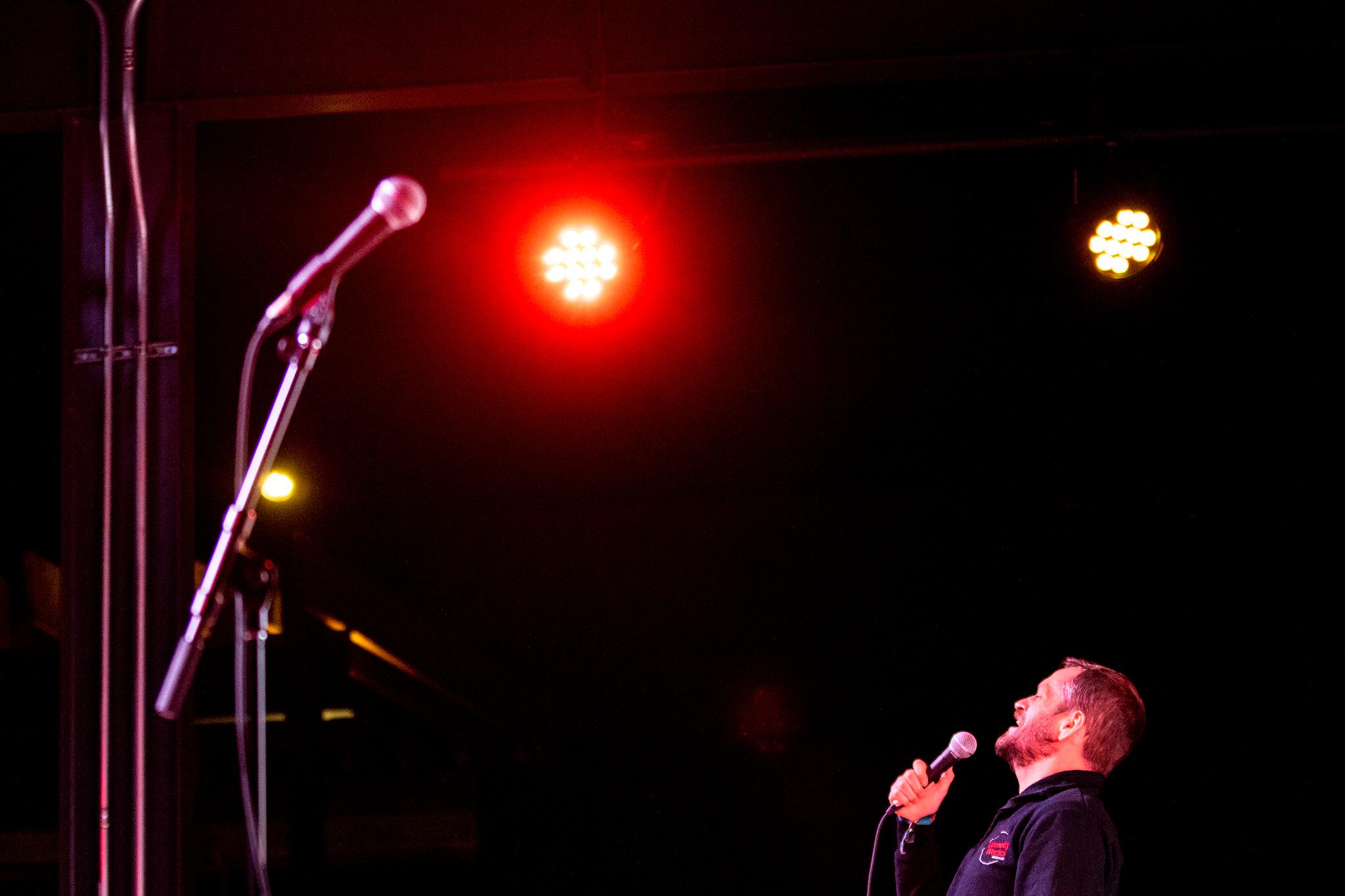
"Remember when we were optimistic? Remember back in February and March? There was good will everywhere. We were howling at the moon every night at 8 p.m. ... We all felt part of something. That didn't last f****** long at all," he laughed. "I started buying guns. I started smoking Swisher Sweets. I was just like, if I'm going out, I'm going out hard and smelling like a bus terminal."
In the green room after the show, Roy said he agreed with Patrick. Still, he wanted to go there.
"I like dark. I think that dark is where the funny is. I think that's the way that people process things. They want to laugh about it. They want to try to find the funny part," he said, "because if they don't, it'll crack you."
But Roy didn't end his set with the dark humor. Instead, he rounded out his time on stage with something that really drew an applause.
"Please take care of your mental health during all of this," he told the crowd. "You've got to find a way to do it. And as much as you all are out here - I'm sure - to have some semblance of normalcy, from all of us comics: I don't think you realize how much it makes us feel as if we're normal people as well. And it makes us feel great."
